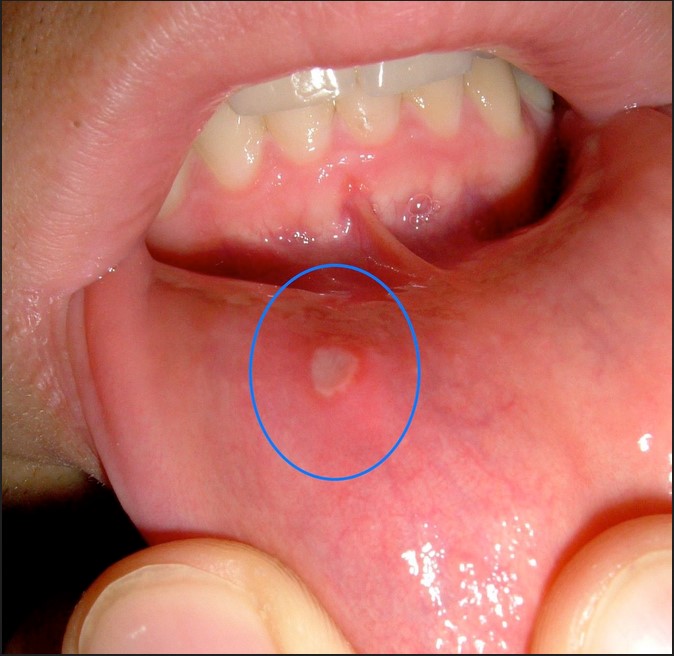
Ulcer aphthous is a common condition that causes painful sores in the mouth. It is also known as canker sores or aphthous stomatitis. The sores can range in size from small to large and can be found on the tongue, inside the cheeks, and on the lips. They can be painful and can make eating and talking difficult. The cause of ulcer aphthous is unknown, but it is believed to be related to stress, certain foods, and a weakened immune system. Symptoms include redness, swelling, and pain around the sore. Treatment options include topical medications, mouth rinses, and dietary changes.
Exploring the Causes of Ulcer Aphthous: What You Need to Know
Ulcer aphthous, commonly known as canker sores, are small, painful ulcers that can appear in the mouth. They are a common condition, affecting up to 20% of the population. While the exact cause of ulcer aphthous is unknown, there are several potential contributing factors that may play a role in their development.
One possible cause of ulcer aphthous is a weakened immune system. People with weakened immune systems are more likely to develop canker sores, as their bodies are unable to fight off the bacteria that can cause them. Additionally, certain medications, such as antibiotics, can also weaken the immune system and increase the risk of developing canker sores.
Another potential cause of ulcer aphthous is stress. Stress can weaken the immune system, making it more susceptible to infection. Additionally, stress can also cause inflammation in the mouth, which can lead to the development of canker sores.
Dietary deficiencies may also be a contributing factor to the development of ulcer aphthous. A lack of certain vitamins and minerals, such as iron, zinc, and vitamin B12, can lead to a weakened immune system and an increased risk of developing canker sores.
Finally, certain medical conditions, such as Crohn’s disease, celiac disease, and HIV/AIDS, can also increase the risk of developing ulcer aphthous. These conditions can weaken the immune system and make it more susceptible to infection.
While the exact cause of ulcer aphthous is unknown, there are several potential contributing factors that may play a role in their development. It is important to speak to a doctor if you are experiencing frequent or severe canker sores, as they may be a sign of an underlying medical condition.
Understanding the Symptoms of Ulcer Aphthous: What to Look For
Ulcer aphthous, also known as canker sores, are small, painful ulcers that can appear in the mouth. They are a common condition, affecting up to 20% of the population. While the exact cause of ulcer aphthous is unknown, they are thought to be triggered by stress, certain foods, or a weakened immune system. It is important to be aware of the symptoms of ulcer aphthous in order to seek treatment and prevent further complications.
The most common symptom of ulcer aphthous is the appearance of small, round ulcers in the mouth. These ulcers can range in size from a few millimeters to a few centimeters and may be white, yellow, or gray in color. They may also have a red border. The ulcers can be found on the tongue, inside the cheeks, on the gums, or on the lips.
In addition to the ulcers, other symptoms of ulcer aphthous may include pain or discomfort when eating or drinking, a burning sensation in the mouth, and swollen lymph nodes in the neck. The ulcers may also be accompanied by fever, fatigue, and general malaise.
If you experience any of these symptoms, it is important to seek medical attention. Your doctor may recommend a topical or oral medication to help reduce the pain and speed up the healing process. In some cases, a biopsy may be necessary to rule out other conditions.
By being aware of the symptoms of ulcer aphthous, you can take steps to prevent further complications and seek treatment as soon as possible.
Conclusion
In conclusion, ulcer aphthous is a common condition that can cause painful sores in the mouth. The exact cause of ulcer aphthous is unknown, but it is believed to be related to stress, certain medications, and a weakened immune system. Symptoms of ulcer aphthous include painful sores, redness, and swelling. Treatment options for ulcer aphthous include topical medications, oral medications, and lifestyle changes. With proper treatment, ulcer aphthous can be managed and the symptoms can be reduced.
